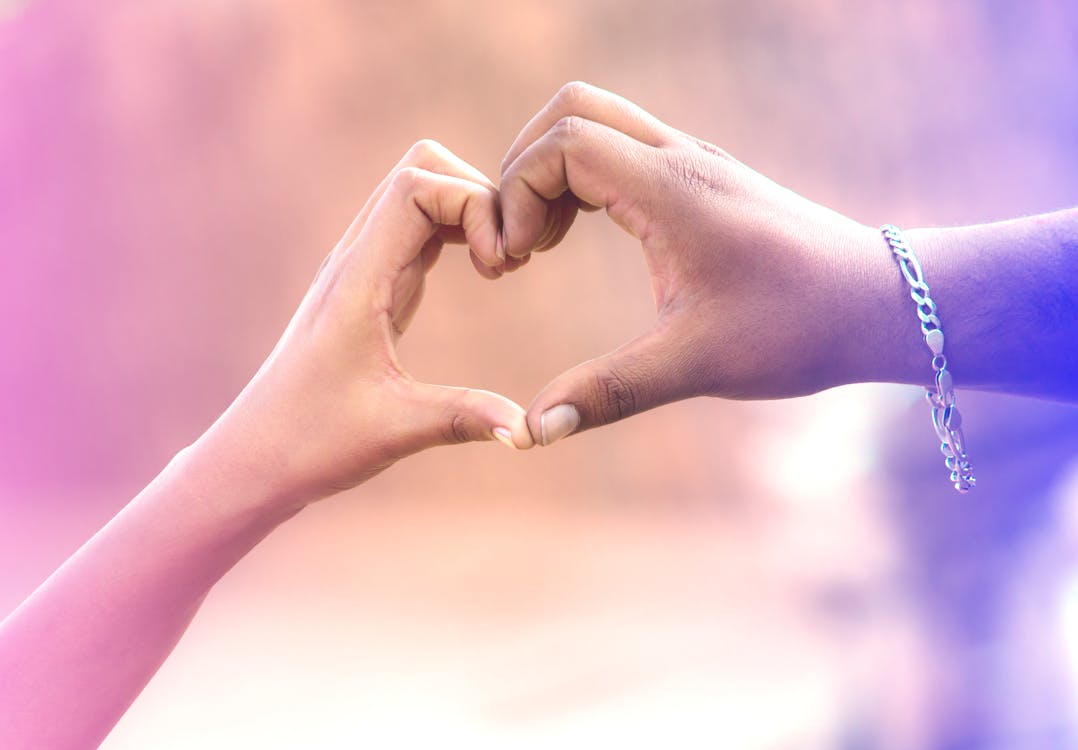With Valentines day coming next Wednesday, I thought it would be a great idea to explore exactly
what happens to people when they experience Love and seeing what they understand about Love.
For this project, I decided to interview Lydia Page and Arturo Garcia. I got a taste of some of their personal experiences with their relationship and I explained to them the biological processes that occur when we are "in love" and the mystery of what goes on in the brain. I've included a video of the interview down below:
I based my interview on some of my own research (although I am one to admit that I was a little loose with the script!). The following notes may provide you with some more insight to the topic as you watch the video.
INTERVIEW NOTES:
"In my research, I have found a truth that the creatures of Earth are at their core social beings. Living organisms, from the largest whales to the most microscopic bacteria, tend to grow in communities, rely on each other for reproduction, and invest in each other for the future of their species. This truth is applicable to humans as well.
 |
| Lydia Page, Arturo Garcia, and myself. We are the stars behind the hand puppets! |
"There are many processes that occur in the human brain when “love” is experienced. Most of the sensations and emotions connected to love are generated in the interior parts of the brain, or the “primitive brain”, according to evolutionary terminology. The Vagus Nerve (or the 10th cranial nerve) transmits sensory input to this part of the brain and begins this cycle of unimaginable elation. The key player in this process is the Amygdala, an almond shaped part of the brain that controls love, fear, anger, desire, and other important emotions. These emotions become more permanent as the Hippocampus and the Cingulate Gyrus “save” these emotions to memory, thus causing you to repeatedly recall in your mind the person that you love.
"This love becomes more permanent with the neuropeptide known as Oxytocin. Oxytocin is responsible for the process of emotional bonding. The more time you spend with someone and the more you go through stressful situations with them, the more Oxytocin is released in your system and the more attached you will become to that person. In this light, it’s not surprising that the relationships between mothers and their children are some of the strongest in the entire human race because the children were in the mother’s womb for a significant amount of time, resulting in long periods of bonding.
"There is also a surge of Dopamine, the “feel good” neurotransmitter. Dopamine is the ultimate hormone for pleasure and feeling rewarded because it enhances movement and provides a surplus of energy when it is released. When two people first fall in love with each other, they experience a downpour of dopamine and become hyped with pleasurable sensations similar to taking cocaine, hence why some psychologists call this initial interaction the cocaine rush phase.
 "In essence, the structure of your brain and the hormones in your body contribute to emotional development and changes in people’s behaviors."
"In essence, the structure of your brain and the hormones in your body contribute to emotional development and changes in people’s behaviors."Have a Happy Valentines!
Sources
Biochemistry of Love
Falling in Love is Like Smoking Crack Cocaine
Love and the Brain
What Parts of the Human Brain correspond to emotion or love?
I love that you did biochemistry of love, i was planning on doing the same one. I found it really interesting that the feeling of love is all just based of the chemicals release in our brain. The brain is crazy, i cant believe how much little things in life like the amount of time we spend with someone can cause so many connections are processes in the brain to take place.
ReplyDeleteHey Emelia! This blog post is great and it was a perfect time to choose to write a blog over love! I made so many connections in this post and compared the information you gathered to my own personal relationship. All the chemicals that are released in the brain such as oxytocin made since to me when I thought about why some people are super clingy in relationships. Great work.
ReplyDeleteHey Emelia, loved the blog post. Biochemistry of love is such a fascinating topic. The brain contains such a large impact towards finding the feeling of love based off the chemicals it releases. I found your description over Dopamine to be very interesting. Connecting it to cocaine was perfect when looking at the amount of pleasure able energy it provides as you first fall in love.
ReplyDeleteI find all your comments very meaningful and insightful. Good job John!
DeleteYou have done something unique. Stands out! You have explained the content really well and also the blog post is done extremely well. Good job! By the way, Lydia has been one of my great students in the past. So it was nice to see her :)
ReplyDelete